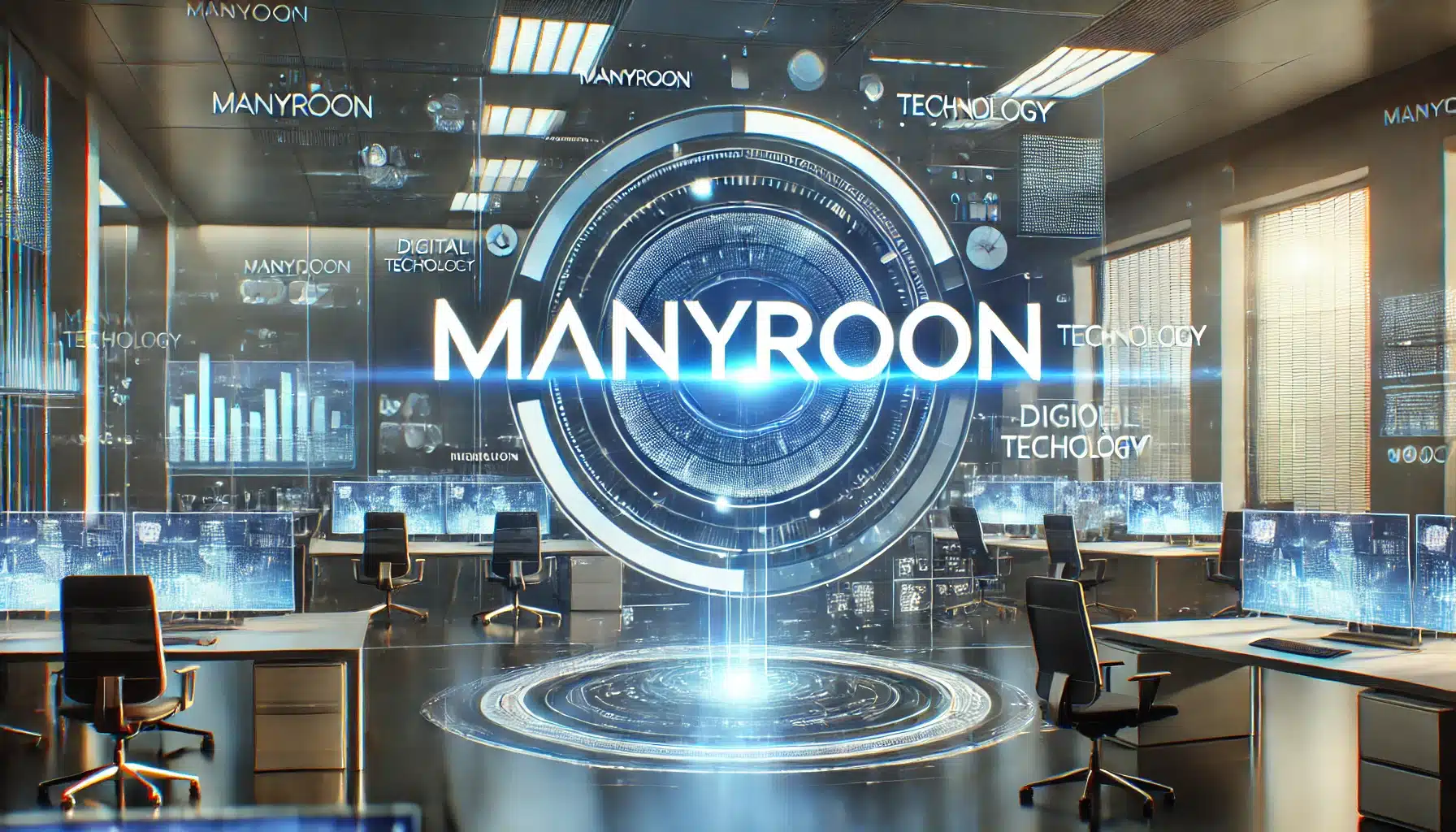Business
Three Essential Types of Business Technology

Table of Contents
Businesses in all sectors need to ensure that they operate at high levels of efficiency and productivity. Organizations that suffer from inefficient or wasteful working methods will find it increasingly hard to compete in the modern world economy.
With the boom in e-commerce and the exponential growth of the internet, businesses may find that they need to gain a competitive advantage over firms in other countries. The global marketplace is becoming increasingly crowded, and it’s important that companies look for inventive ways to remain a key player in their industry.
Thankfully, many organizations can harness the power of the latest technological advances to improve their operations. Modern tech can help a business to make intelligent decisions that secure long-term growth and prosperity and enjoy improved efficiency and more effective collaboration between staff. This article will discuss three essential types of business technology that eschew these benefits.
1. API platforms
All forms of business are currently making, or have already made, the transition to cloud-based services. The cloud industry is now worth hundreds of billions of dollars globally and is expected to continue to grow at a rate of 20% CAGR between 2023 and 2030. This technology is now recognized as essential across many industries as it can offer efficiency improvements across the IT infrastructure of a business.
However, organizations must add a class-leading api platform to this online infrastructure. Such technology ensures that individual applications and programs communicate effectively with each other. This ensures that online systems function smoothly and efficiently and allows staff to operate them to high levels of productivity. In addition, the layers of security that come from an API platform (in the form of traffic and access request management) allow a company to be reassured that its online business architecture is protected from the acts of cyber criminals.
2. Collaboration software
In 2022, it was estimated that approximately 44% of the world’s working population operated remotely at least for some part of their jobs. Remote and hybrid models of work are proving to be popular with staff as many feel that it allow them to gain greater control over their work-life balances. There’s even evidence to suggest that remote workers may be more productive than their corporate office-based counterparts.
However, there’s a need for organizations to incorporate technological solutions that promote effective remote and hybrid models of working. Video conferencing software can help meetings take place without the need for a shared physical location. In addition, collaborative platforms such as monday.com and Miro help remote teams work together effectively. As these systems are located online, updates to projects and sub-tasks can be added so that all stakeholders have an up-to-date picture of progress and don’t duplicate activities.
3. Advanced Analytics
Businesses are increasingly relying on advanced analytics packages in the form of business intelligence platforms. Microsoft Power BI is an example of this technology and is widely used across many industries. This technology allows insights to be gained from complex and voluminous business data that couldn’t be achieved by human staff. Many firms now rely on this technology when making strategic or long-term decisions as it can reduce the uncertainty in this process and improve the likelihood of success.
Cryptocurrency
How to Buy BTC with a Credit Card and BTC Price Prediction for 2025

Table of Contents
Understanding Bitcoin and Its Growing Popularity
Bitcoin (BTC) remains the most well-known cryptocurrency globally. As the pioneer of blockchain technology, BTC has gained mainstream attention due to its decentralized nature, security, and investment potential. Many investors seek ways to purchase Bitcoin quickly and efficiently, leading to a surge in demand for convenient payment options. One of the easiest methods is to buy BTC with a credit card, allowing users to enter the crypto market instantly.
How to Buy BTC with a Credit Card
Purchasing Bitcoin with a credit card has become increasingly accessible due to cryptocurrency exchanges that support fiat-to-crypto transactions. Here’s a simple step-by-step guide:
- Choose a Reliable Exchange – Many platforms offer the option to buy BTC with a credit card, ensuring secure transactions and competitive rates.
- Sign Up and Verify Your Identity – Most exchanges require KYC (Know Your Customer) verification for security and compliance.
- Select Payment Method – Enter your credit card details and choose the amount of BTC you want to purchase.
- Confirm the Transaction – Once payment is processed, Bitcoin will be credited to your wallet almost instantly.
- Store Your BTC Securely – After buying Bitcoin, transfer it to a private wallet for added security.
By using platforms like SwapSpace, users can seamlessly convert fiat currency into Bitcoin within minutes.
Benefits of Buying BTC with a Credit Card
There are several advantages to purchasing Bitcoin with a credit card:
- Speed – Instant transactions allow users to acquire BTC without waiting for bank transfers.
- Convenience – Users can buy BTC from anywhere, at any time.
- Security – Trusted exchanges implement strict security protocols to protect users’ funds.
- Accessibility – Even beginners can easily navigate the process of purchasing Bitcoin.
BTC Price Prediction: What’s Next for Bitcoin?
As Bitcoin continues to evolve, investors closely follow its price trends. Many factors influence BTC’s price, including market demand, adoption rates, regulatory developments, and macroeconomic trends. Analysts and experts provide insights through BTC Price Prediction to help traders make informed decisions.
Key BTC Price Forecasts:
- Short-Term Predictions – Some analysts expect BTC to experience volatility due to market conditions, but overall growth remains positive.
- Long-Term Outlook – With increasing institutional adoption, Bitcoin could surpass previous all-time highs, making it a valuable long-term asset.
- Market Trends – Halving events, institutional investments, and blockchain advancements all play a role in BTC’s future pricing.
For an in-depth BTC price prediction, platforms like SwapSpace offer real-time data and expert forecasts.
Conclusion
Bitcoin remains a top choice for investors and traders worldwide. With the ability to buy BTC with a credit card, entry into the cryptocurrency market is easier than ever. Additionally, staying updated with BTC price prediction insights helps investors strategize effectively. As the crypto industry grows, Bitcoin continues to solidify its position as the leading digital asset.
FAQs
How can I buy BTC with a credit card?
You can buy BTC with a credit card through crypto exchanges that support fiat-to-crypto transactions.
Is buying Bitcoin with a credit card safe?
Yes, using reputable platforms ensures security, encryption, and fraud protection for credit card transactions.
What factors affect BTC price prediction?
Market demand, regulations, institutional investments, and BTC halving impact its price trends.
Where can I find accurate BTC price predictions?
You can check BTC Price Prediction platforms for expert forecasts and real-time analysis.
Why should I use a credit card to buy Bitcoin?
It offers instant transactions, convenience, and accessibility without waiting for bank transfers.
Cryptocurrency
FintechZoom: Your Ultimate Guide to Financial News and Market Insights

Table of Contents
FintechZoom is a widely recognized financial news and analysis platform that provides real-time updates on fintech, stock markets, cryptocurrency trends, and banking developments. It helps investors, traders, and financial professionals stay informed with expert insights, market predictions, and industry reports. As the financial world evolves, FintechZoom continues to be a trusted source for up-to-date information.
Key Features of FintechZoom
FintechZoom offers various financial services and updates, making it an essential resource for anyone interested in global markets. Some of its main features include:
- Stock Market Analysis: Covers daily movements in stock indices like the S&P 500, Dow Jones, and Nasdaq. It provides reports on major companies such as Apple, Tesla, and Amazon.
- Cryptocurrency Insights: Tracks Bitcoin, Ethereum, and other altcoins, providing predictions, news, and blockchain-related developments.
- Fintech News: Reports on technological advancements in the financial industry, including AI-driven trading, digital payment innovations, and blockchain applications.
- Banking Trends: Shares insights on online banking, digital wallets, and financial regulations that impact traditional and digital banking institutions.
- Economic Reports: Covers inflation rates, GDP growth, and global economic events that influence financial markets.
FintechZoom plays a crucial role in delivering real-time financial data, helping businesses and individuals make better investment decisions.
FintechZoom’s Role in Financial Markets
As a leading financial news provider, FintechZoom contributes to market analysis and investment strategies in various ways:
- Market Predictions: Offers expert analyses on stock price movements and economic trends, allowing investors to make informed decisions.
- Stock Market Coverage: Tracks daily fluctuations in stock prices and provides insights into market trends and investment opportunities.
- Crypto Investment Advice: Helps traders understand price movements, investment risks, and future growth potential in the cryptocurrency sector.
- Banking Sector Insights: Reports on the latest fintech developments and digital banking innovations that reshape financial services.
By offering in-depth reports, FintechZoom helps investors understand how different economic factors impact their portfolios.
Cryptocurrency Coverage on FintechZoom
The rise of digital currencies has made cryptocurrency news essential for traders and investors. FintechZoom covers various aspects of the crypto market, including:
- Bitcoin and Ethereum Price Movements: Tracks market trends, helping investors determine the best times to buy or sell.
- Altcoin News: Provides updates on smaller cryptocurrencies that have growth potential.
- Blockchain Developments: Discusses how blockchain technology is being used beyond cryptocurrency, such as in banking, supply chain management, and cybersecurity.
- Regulatory Changes: Covers laws and policies affecting crypto markets in different countries, helping traders navigate legal aspects of digital assets.
FintechZoom ensures its readers stay updated with all the latest cryptocurrency trends and industry insights.
FintechZoom’s Impact on the Fintech Industry
The financial technology industry is rapidly evolving, and FintechZoom plays a key role in highlighting important developments. Some of its contributions include:
- Digital Payment Innovations: Tracks advancements in contactless payments, mobile banking, and online transaction security.
- Artificial Intelligence in Finance: Covers the role of AI-driven trading systems, robo-advisors, and machine learning algorithms in financial decision-making.
- Tracking Fintech Startups: Analyzes emerging fintech companies and their impact on traditional financial institutions.
- Fintech Regulations: Discusses new compliance policies that affect digital banking and financial services.
FintechZoom continues to provide cutting-edge insights that shape the future of the financial technology industry.
Benefits of Using FintechZoom
FintechZoom is a valuable resource for investors, traders, and fintech enthusiasts. Some of the key benefits of using the platform include:
- Real-Time Market Updates: Helps users stay ahead of financial trends with up-to-the-minute stock and crypto news.
- Expert Financial Insights: Features professional opinions and market predictions from financial analysts and industry experts.
- Comprehensive Coverage: Offers a wide range of content, including stock market reports, fintech trends, economic updates, and cryptocurrency news.
- User-Friendly Interface: Provides easy navigation, allowing users to quickly find relevant financial information.
By delivering accurate and timely information, FintechZoom helps individuals and businesses make informed financial decisions.
Conclusion
FintechZoom is a trusted platform that provides financial news, market analysis, and investment insights. Whether you’re a stock trader, a cryptocurrency investor, or a fintech enthusiast, FintechZoom offers the latest information to keep you ahead in the financial world. With its real-time updates, expert analysis, and comprehensive coverage, FintechZoom remains one of the top sources for financial information in today’s digital age.
FAQs
What is FintechZoom used for?
FintechZoom provides financial news, stock market analysis, cryptocurrency updates, and fintech industry insights.
Does FintechZoom offer real-time stock updates?
Yes, FintechZoom tracks real-time stock movements, major indices, and investment trends for investors.
Is FintechZoom reliable for cryptocurrency news?
Yes, FintechZoom offers expert analysis, price predictions, and regulatory updates on Bitcoin, Ethereum, and altcoins.
Does FintechZoom cover fintech startups?
Yes, it provides insights into emerging fintech startups, innovations, and digital banking trends.
How can FintechZoom help investors?
It offers expert financial insights, stock and crypto market updates, and economic reports to guide investment decisions.
Business
Fre24onlinne: The All-in-One Digital Platform for Every Need

Table of Contents
Fre24onlinne is a digital platform designed to offer users an all-in-one experience across different online activities. It provides accessibility to various services, including shopping, education, business collaboration, and entertainment.
The platform is gaining popularity due to its ability to streamline multiple online functions in one place. Users no longer need to switch between different applications or websites, making their digital interactions more efficient.
One of the main advantages of Fre24onlinne is its user-friendly interface. It ensures that people from all backgrounds, including students, professionals, and business owners, can navigate the platform with ease.
As technology advances, digital platforms like Fre24onlinne continue to revolutionize how individuals interact with online services. Whether it is learning, shopping, or working, this platform simplifies everything in a single space.
Understanding Fre24onlinne
Fre24onlinne is not just a single-purpose website; it is a multi-functional platform that integrates different online activities. It enables users to access a variety of tools, making it a hub for digital interaction.
The platform focuses on accessibility, allowing users to engage with its services 24/7. Whether someone wants to attend an online class, manage business tasks, or shop for products, Fre24onlinne provides a seamless experience.
One of its main objectives is to enhance efficiency. Users can find everything they need without the hassle of browsing multiple platforms. This saves time and improves productivity.
Another key feature is its adaptability. Fre24onlinne can be used across different devices, ensuring a smooth experience whether accessed on a computer, tablet, or smartphone.
Features of Fre24onlinne
3.1 User-Friendly Interface
Fre24onlinne is designed to be accessible to all users, regardless of their technical expertise. The interface is clean, intuitive, and simple to navigate.
Users can personalize their experience by adjusting settings according to their preferences. This makes it easier to access frequently used features without unnecessary complications.
Compatibility with multiple devices ensures users can switch between a desktop, tablet, or smartphone without any disruptions. The responsive design adapts to different screen sizes, making it convenient for everyone.
The platform also includes built-in support features such as FAQs and live assistance to help users resolve any issues quickly. This enhances the overall user experience and ensures smooth functionality.
3.2 Wide Range of Services
Fre24onlinne integrates multiple services in one place, making it a versatile digital platform. Users can engage in online shopping, business activities, education, and entertainment without needing separate accounts for each service.
Key Services Include:
- E-commerce: Users can browse, purchase, and review products effortlessly.
- Education: Online courses, virtual classrooms, and study materials are available.
- Business Collaboration: Tools for teamwork, project management, and communication.
- Entertainment: Streaming services for music, videos, and gaming.
By offering such diverse services, Fre24onlinne ensures that users find everything they need within a single platform.
3.3 Security and Privacy Protection
Security is a top priority for Fre24onlinne. The platform implements strong encryption methods to protect user data from unauthorized access.
Users have full control over their privacy settings. They can manage their data preferences, ensuring a secure and customized online experience.
To prevent cyber threats, the platform includes multi-factor authentication and regular security updates. These measures provide an extra layer of protection for personal information.
Trust and reliability are key aspects of Fre24onlinne, making it a safe digital space for various online activities.
Applications of Fre24onlinne
4.1 Education and Learning
Fre24onlinne is a valuable platform for students and educators. It provides tools for online classes, study materials, and interactive learning experiences.
Virtual classrooms allow students to participate in lessons from anywhere. This makes education more accessible, especially for those who prefer remote learning.
The platform supports collaboration through discussion forums, file sharing, and group projects. This helps learners engage with their peers and instructors effectively.
With its flexible learning environment, Fre24onlinne enhances the educational experience by offering diverse resources and interactive content.
4.2 Business and Work Collaborat#ion
Businesses can use Fre24onlinne to improve communication and productivity. It includes features for project management, video conferencing, and team collaboration.
Business Tools Available:
- Task Management: Assign and track project progress.
- File Sharing: Securely exchange documents and resources.
- Live Communication: Chat and video call options for remote teams.
These tools help businesses streamline operations and improve efficiency, especially for remote work environments.
4.3 E-commerce and Shopping
Fre24onlinne offers an integrated shopping experience, allowing users to browse products, read reviews, and make purchases securely.
The platform provides multiple payment options, ensuring convenience for users worldwide. Secure transactions protect financial data, making online shopping safe and reliable.
Vendors can also use the platform to sell their products, increasing their reach and business opportunities. This makes it beneficial for both buyers and sellers.
How to Use Fre24onlinne
Getting started with Fre24onlinne is easy. Users need to create an account and set up their profile based on their preferences.
Once logged in, they can explore different sections such as education, shopping, and business tools. Navigation is straightforward, allowing users to access services quickly.
To make the most out of the platform, users can personalize their dashboard. This helps in organizing frequently used features for better accessibility.
By following simple steps, users can maximize their experience on Fre24onlinne and enjoy all its available services.
Advantages of Fre24onlinne
Fre24onlinne provides a convenient digital space where multiple activities can be performed in one place. This eliminates the need for using different platforms for different tasks.
The platform is accessible 24/7, allowing users to engage with it at any time. Whether it is for work, learning, or entertainment, it remains available without restrictions.
Security is another major advantage. Users can trust the platform’s privacy settings and encryption protocols to keep their data safe.
With its diverse services and user-friendly interface, Fre24onlinne offers an efficient and secure online experience for everyone.
Challenges and Considerations
Although Fre24onlinne is a powerful platform, there are some challenges to consider. Users may need time to familiarize themselves with all available features.
Since it integrates multiple services, there is a need for continuous updates to maintain smooth functionality. Occasional maintenance can cause temporary service interruptions.
Data privacy is a common concern. While Fre24onlinne provides strong security, users must remain cautious and update their privacy settings regularly.
By addressing these challenges, the platform can continue to improve and provide a seamless user experience.
Future of Fre24onlinne
Fre24onlinne is expected to grow and introduce new features in the future. Continuous updates will enhance the user experience by improving security and adding new tools.
With advancements in AI, the platform may integrate smarter personalization features. This will provide users with more tailored recommendations based on their interests.
Expanding to more industries, including healthcare and finance, could further increase its impact. This would make Fre24onlinne a more comprehensive digital solution.
The future of Fre24onlinne looks promising as it continues to evolve and meet the changing needs of online users.
Conclusion
Fre24onlinne is a versatile platform that combines multiple online services into one accessible space. It offers convenience, security, and efficiency for users worldwide.
With its wide range of features, including education, business collaboration, and e-commerce, it serves as a valuable digital tool for individuals and businesses alike.
As technology advances, Fre24onlinne will continue to expand, providing better solutions for online activities. Exploring and using the platform can help users maximize their digital experience.
FAQs
What is Fre24onlinne used for?
Fre24onlinne is a multi-functional platform that offers online shopping, education, business tools, and entertainment in one place.
Is Fre24onlinne secure for transactions and data privacy?
Yes, it uses advanced encryption and security measures to protect user data and ensure safe online transactions.
Can I use Fre24onlinne on different devices?
Yes, Fre24onlinne is compatible with desktops, tablets, and smartphones, ensuring seamless access across devices.
How do I create an account on Fre24onlinne?
Simply visit the website, provide basic details, and follow the registration process to set up your profile.
Does Fre24onlinne offer customer support?
Yes, it provides 24/7 support through live chat, FAQs, and email assistance for user inquiries.
-

 Travel4 years ago
Travel4 years agoThe Family of Kirk Passmore Issues a Statement Regarding the Missing Surfer
-

 Technology4 months ago
Technology4 months agoManyroon: The Key to Unlocking Future-Proof Business Solutions
-

 Cryptocurrency1 year ago
Cryptocurrency1 year agoBest Tips For Cryptopronetwork com Contact 2024
-

 Technology3 years ago
Technology3 years agoPaturnpiketollbyplate Login & Account Complete Guide Paturnpike.com
-

 Apps & Software2 years ago
Apps & Software2 years agoFapello 2023: Social Media Platform for NSFW Content
-

 Business4 months ago
Business4 months agoCoyyn.com Gig Economy: Smart Contracts and Fair Payments for Freelancers
-

 Law3 years ago
Law3 years agoShould I Hire a Lawyer For My Elmiron Case?
-

 Business4 months ago
Business4 months agoAcumen: The Key to Smart Decision-Making and Success






